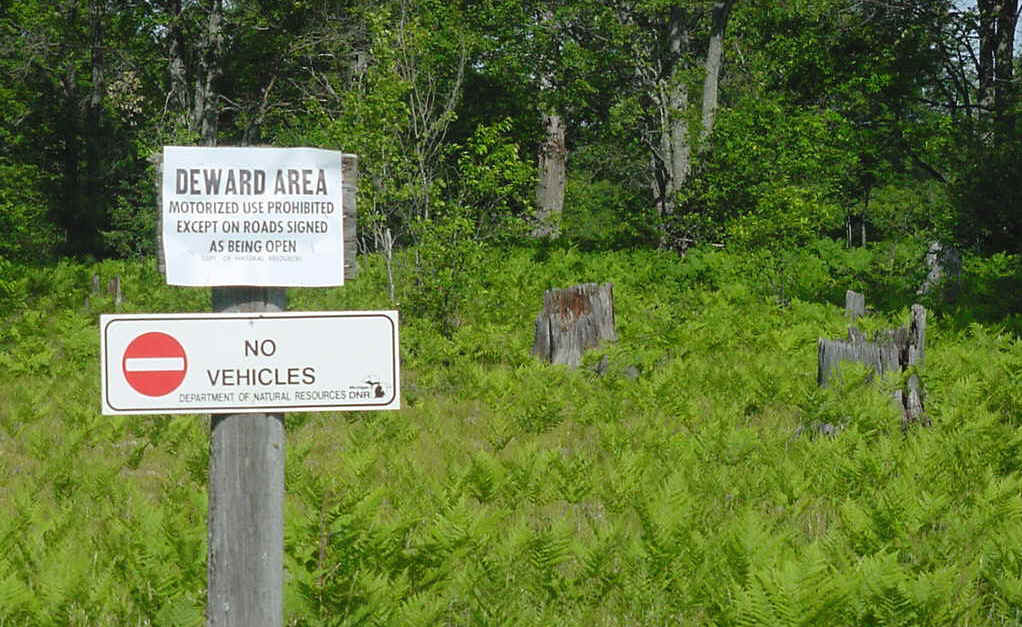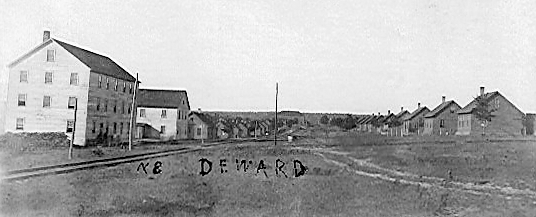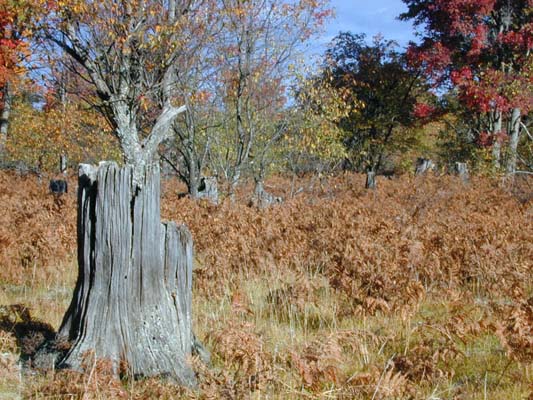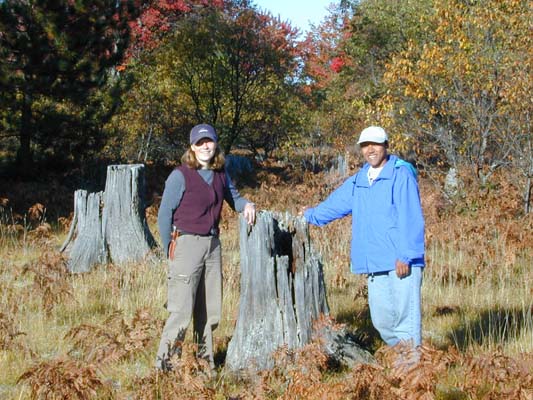The village of Deward, in Crawford County, was founded and named in honor of David E. Ward for the soul purpose of timbering off the remains of virgin pine timber after his death, in May of 1900. This white pine stand, a few km NW of Grayling, and one stand in the UP, were the last big stands of virgin pine in the state.

Source: Photograph by Randy Schaetzl, Professor of Geography - Michigan State University
Many biographies and stories have been written about David Ward, who at
the peak of the lumbering industry owned most of the choice timberlands in the Crawford,
Kalkaska, Antrim, Charlevoix, and Otsego Counties. His holdings extended from Deward on
the south to Boyne Falls on the north, and from Frederic and Vanderbilt on the east to
Mancelona and East Jordan on the west, an expanse of nearly 50 miles in either direction.
In addition to a school, church, community hall, boarding house, hotel
and stores, there was a roundhouse, depot, warehouse and other facilities connected with
the Detroit & Charlevoix railroad yards over which eight engines steamed day and night
delivering nearly 1/4 of a million board feet of lumber, the daily output of the sawmills.
The pictures below provide a "feel" for what Deward may have been like.

Source: Unknown
The Deward postoffice was established in 1901. At one time the
population reached 800. In 1905 it was 25, and contained only a sawmill, store and hotel.
The village made a comeback for a short time in 1917, and had a population of 191, and a
telephone. The hotel and other business places were open. In 1999, the population of
Deward was zero. Today, very little remains of Deward except stumps and scrub brush.
Among the ferns and stumps one might find, if you look, building foundations,
pieces of metal, broken glass, and other sings of the once thriving town.
Area near Deward as it looks today:

Source: Photograph by Randy Schaetzl, Professor of Geography - Michigan
State University

Source: Photograph by Randy Schaetzl, Professor of Geography - Michigan State University
This material has been compiled for educational use only, and may not be reproduced without permission. One copy may be printed for personal use. Please contact Randall Schaetzl (soils@msu.edu) for more information or permissions.